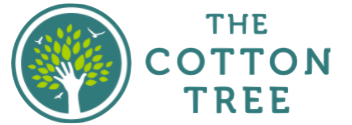Adverse effects of discrimination on asylum seeker mental health
It’s not easy coming to a new place with different cultural practices, a place where you might stand out, a place that is not quite home yet. The environment you enter, how welcoming, warm and kind it is, makes a huge difference.
In a review I conducted, I found 24 social environmental factors that can influence the mental health of people seeking asylum. These factors encompassed seven domains: ‘working conditions, social networks, economic class, living conditions, healthcare, community and identity, and the immigration system’.
My key finding was that discrimination negatively affects the mental health of people seeking asylum. As a second generation Iranian migrant, this finding has been a lived reality for me. Discrimination, both on an interpersonal level and on an institutional level, has negatively affected my family and friends while they sought asylum in the UK. Even after people have received a positive decision, the pain lingers for many years.
Discrimination against people seeking asylum can happen in many ways: a culture of disbelief from government officials in job centres or at the asylum interview, forcibly separating people from their support networks as part of the accommodation dispersal policy, and not being able to open a bank account despite being entitled to do so. More personally, it can involve racist abuse and violence, social exclusion and negative stereotypes.
The review provides rigorous evidence supporting the experiences of thousands, including my family. Discrimination is a particular problem for people seeking asylum. It is so much of a problem, it is associated with mental disorders. Cotton Tree’s heal & grow branch is doing amazing work supporting people’s well-being while they go through the asylum process. It can help mitigate some of the damage caused by discrimination and support people in their resistance of it. That’s why Cotton Tree’s Therapy Fund is so important.
Alongside Cotton Tree’s work, there needs to be intuitional change. Change to combat the systemic racism in our society. Black Lives Matter protesters are protesting the racism that seeps into all facets of our society, into our education system, our health institutions and businesses. This racism is no less evident in our immigration system. I hope that my review can play a small role in helping the struggle to change things for the better.
Sohail Jannesari is a researcher at KCL on Migration and Mental Health. Anti-racist and migrant rights' activist with Migrant Connections Festival, Speaking Statues and Walk and Talk Migrant Tours. A Cotton Tree co-founder.
Twitter @SohailJannesari

